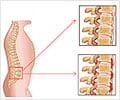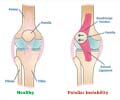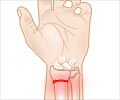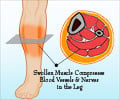Review the side-effects of Diclofenac as documented in medical literature. The term "side effects" refers to unintended effects that can occur as a result of taking the medication. In majority of the instances these side-effects are mild and easily tolerable, however sometimes they can be more severe and can be detrimental.
If the side effects are not tolerable adjusting the dosage or switching to a different medication can help to manage or overcome side effects. If you have any doubts or questions, we recommend seeking advice from your doctor or pharmacist.
Gastrointestinal: Nausea, constipation, flatulence, pain in the abdomen, indigestion, vomiting, bleeding and ulcers in the stomach
Cardiovascular: Heart failure, fluid accumulation, palpitations, chest pain, high blood pressure
Central nervous system: Dizziness, headache, hallucination, drowsiness
Respiratory: Upper respiratory infection, sinusitis, bronchitis, nasopharyngitis, shortness of breath
Skin: Rashes, itching, increased sweating, exfoliative dermatitis, urticaria, Stevens-Johnson syndrome, toxic epidermal necrolysis
Genitourinary: Abnormal kidney function, raised concentrations of serum creatinine, urinary tract infection
Others: Anemia, ringing sensation in the ears, raised level of liver enzymes, liver damage, prolongation in bleeding time, reduced blood counts, allergic reactions
• It is recommended to report to the emergency center any signs and symptoms of allergic reactions, gastrointestinal complaints, cardiovascular events, liver toxicity, unusual weight gain or weight loss.
Voltaren, Cataflam, Dyloject, Zorvolex, Cambia, Zipsor
If the side effects are not tolerable adjusting the dosage or switching to a different medication can help to manage or overcome side effects. If you have any doubts or questions, we recommend seeking advice from your doctor or pharmacist.
Gastrointestinal: Nausea, constipation, flatulence, pain in the abdomen, indigestion, vomiting, bleeding and ulcers in the stomach
Cardiovascular: Heart failure, fluid accumulation, palpitations, chest pain, high blood pressure
Central nervous system: Dizziness, headache, hallucination, drowsiness
Respiratory: Upper respiratory infection, sinusitis, bronchitis, nasopharyngitis, shortness of breath
Skin: Rashes, itching, increased sweating, exfoliative dermatitis, urticaria, Stevens-Johnson syndrome, toxic epidermal necrolysis
Genitourinary: Abnormal kidney function, raised concentrations of serum creatinine, urinary tract infection
Others: Anemia, ringing sensation in the ears, raised level of liver enzymes, liver damage, prolongation in bleeding time, reduced blood counts, allergic reactions
Other Precautions :
• Patients should be advised not to interchange the formulations of diclofenac for their treatment as the formulations may not be bioequivalent.• It is recommended to report to the emergency center any signs and symptoms of allergic reactions, gastrointestinal complaints, cardiovascular events, liver toxicity, unusual weight gain or weight loss.
Drug Name : Diclofenac
Diclofenac(Voltaren) generic is a non-steroidal anti-inflammatory drug (NSAID) prescribed to treat mild-to-moderate musculoskeletal pain. It helps to relieve: Tenderness, stiffness, and inflammation due to osteoarthritis , rheumatoid arthritis , and ankylosing spondylitis Musculoskeletal pain due to sprains, strains or other causes. Migraine headache and other types of headache. Painful menstrual cramps. Pre and post-operative pain. Pain due to kidney stones and gallstones.Trade Names for Diclofenac
India :
Lyfen - M |
Elwin -Plus |
Bioflex |
Nifgel |
Diplodac |
Euspas |
Diclonac -P |
Altase -D |
Inolide |
Dyzego |
Microdase - D |
Inflasri -D |
Oxalgin-MR (50mg/4mg) (50mg/4mg) |
Actizobid |
Armdic SP |
Dpotase |
Diclopep EC |
Diclogesic |
Serflam - D |
Diclon Plus
International :
Voltaren, Cataflam, Dyloject, Zorvolex, Cambia, Zipsor






























